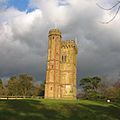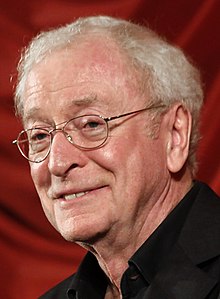Portal:Surrey
| WikiProject Surrey | Surrey Portal |
The Surrey Portal

Surrey (/ˈsʌri/) is a ceremonial county in South East England. It is bordered by Greater London to the northeast, Kent to the east, East and West Sussex to the south, and Hampshire and Berkshire to the west. The largest settlement is Woking.
The county has an area of 1,663 km2 (642 square miles) and a population of 1,214,540. Much of the north of the county forms part of the Greater London Built-up Area, which includes the suburbs within the M25 motorway as well as Woking (103,900), Guildford (77,057), and Leatherhead (32,522). The west of the county contains part of built-up area which includes Camberley, Farnham, and Frimley and which extends into Hampshire and Berkshire. The south of the county is rural, and its largest settlements are Horley (22,693) and Godalming (22,689). For local government purposes Surrey is a non-metropolitan county with eleven districts. The county historically included much of south-west Greater London but excluded what is now the borough of Spelthorne, which was part of Middlesex. It is one of the home counties.
The defining geographical feature of the county is the North Downs, a chalk escarpment which runs from the south-west to north-east and divides the densely populated north from the more rural south; it is pierced by the rivers Wey and Mole, both tributaries of the Thames. The north of the county is a lowland, part of the Thames basin. The south-east is part of the Weald, and the south-west contains the Surrey Hills and Thursley, Hankley and Frensham Commons, an extensive area of heath. The county has the densest woodland cover in England, at 22.4 per cent. (Full article...)
Selected article
Godalming (/ˈɡɒdəlmɪŋ/ GOD-əl-ming) is a market town and civil parish in southwest Surrey, England, around 30 miles (49 km) southwest of central London. It is in the Borough of Waverley, at the confluence of the Rivers Wey and Ock. The civil parish covers 3.74 sq mi (9.7 km2) and includes the settlements of Farncombe, Binscombe and Aaron's Hill. Much of the area lies on the strata of the Lower Greensand Group and Bargate stone was quarried locally until the Second World War.
The earliest evidence of human activity is from the Paleolithic and land above the Wey floodplain at Charterhouse was first settled in the middle Iron Age. The modern town is believed to have its origins in the 6th or early 7th centuries and its name is thought to derive from that of a Saxon landowner. Kersey, a woollen cloth, dyed blue, was produced at Godalming for much of the Middle Ages, but the industry declined in the early modern period. In the 17th century, the town began to specialise in the production of knitted textiles and in the manufacture of hosiery in particular.
Throughout its history, Godalming has benefitted from its location on the main route from London to Portsmouth Dockyard. Local transport links were improved from the early 18th century with the opening of the turnpike road through the town in 1749 and the construction of the Godalming Navigation in 1764. Expansion of the settlement began in the mid-19th century, stimulated by the opening of the first railway station in 1849 and the relocation of Charterhouse School from London in 1872. The town has a claim to be the first place in the world to have a combined public and private electricity supply.
Several buildings in the town centre date from the 16th and 17th centuries. The distinctive Pepperpot was built in 1814 to replace the medieval market house and to house the council chamber. Among the notable former residents of the civil parish were Jack Phillips, the senior wireless operator on the RMS Titanic, and the mountaineer George Mallory. James Oglethorpe, the founder of the Colony of Georgia, was born in Godalming in 1696 and the town maintains a friendship with the U.S. state and the cities of Savannah and Augusta in particular. (Full article...)
Selected images
Selected biography
Sir Michael Caine (born Maurice Joseph Micklewhite; 14 March 1933) is an English retired actor. Known for his distinct Cockney accent, he has appeared in more than 160 films over a career that spanned eight decades and is considered a British cultural icon. He has received numerous awards including two Academy Awards, a BAFTA Award, three Golden Globe Awards, and a Screen Actors Guild Award. As of 2017, the films in which Caine has appeared have grossed over $7.8 billion worldwide. Caine is one of only five male actors to be nominated for an Academy Award for acting in five different decades. In 2000, he received a BAFTA Fellowship and was knighted by Queen Elizabeth II.
Often playing a Cockney, Caine made his breakthrough in the 1960s with starring roles in British films such as Zulu (1964), The Ipcress File (1965), The Italian Job (1969), and Battle of Britain (1969). During this time he established a distinctive visual style wearing thick horn-rimmed glasses combined with sharp suits and a laconic vocal delivery; he was recognised as a style icon of the 1960s. He solidified his stardom with roles in Get Carter (1971), The Last Valley (1971), The Man Who Would Be King (1975), The Eagle Has Landed (1976), and A Bridge Too Far (1977).
Caine received two Academy Awards for Best Supporting Actor for his roles as Elliot in Woody Allen's dramedy Hannah and Her Sisters (1986), and as Dr. Wilbur Larch in Lasse Hallström's drama The Cider House Rules (1999). His other Oscar-nominated film roles were in Alfie (1966), Sleuth (1972), Educating Rita (1983), and The Quiet American (2002)—all four of which were for the leading actor category. Other notable performances occurred in the films California Suite (1978), Dressed to Kill (1980), Mona Lisa (1986), Little Voice (1998), Quills (2000), Children of Men (2006), Harry Brown (2009), and Youth (2015).
Caine is also known for his performance as Ebenezer Scrooge in The Muppet Christmas Carol (1992), and for his comedic roles in Dirty Rotten Scoundrels (1988), Miss Congeniality (2000), Austin Powers in Goldmember (2002), and Secondhand Lions (2003). Caine portrayed Alfred Pennyworth in Christopher Nolan's Batman trilogy (2005–2012). He has also had roles in five other Nolan films: The Prestige (2006), Inception (2010), Interstellar (2014), Dunkirk (2017), and Tenet (2020). He announced his retirement from acting in October 2023, with his final film being The Great Escaper, which came out in the same month. (Full article...)
Things you can do
 |
Here are some tasks awaiting attention:
|
- –When a task is completed, please remove it from the list.
Topics
|
Associated Wikimedia
The following Wikimedia Foundation sister projects provide more on this subject:
-
Commons
Free media repository -
Wikibooks
Free textbooks and manuals -
Wikidata
Free knowledge base -
Wikinews
Free-content news -
Wikiquote
Collection of quotations -
Wikisource
Free-content library -
Wikiversity
Free learning tools -
Wikivoyage
Free travel guide -
Wiktionary
Dictionary and thesaurus
| WikiProject Surrey Navigation | |
|---|---|
| Main page | Collaboration | Surrey Portal | |


































